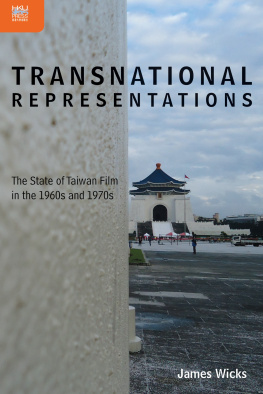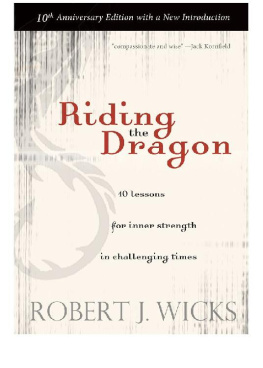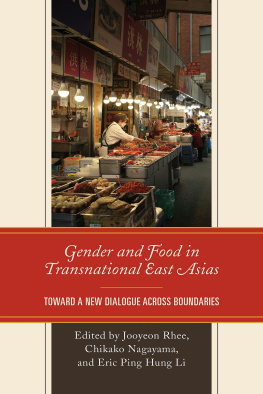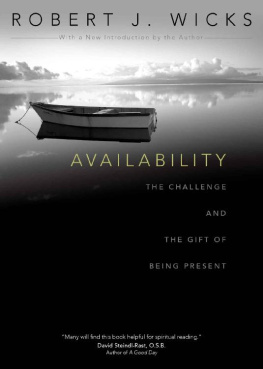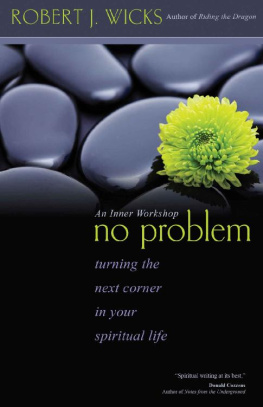James Wicks - Transnational Representations
Here you can read online James Wicks - Transnational Representations full text of the book (entire story) in english for free. Download pdf and epub, get meaning, cover and reviews about this ebook. year: 2014, publisher: HongKongUP, genre: Politics. Description of the work, (preface) as well as reviews are available. Best literature library LitArk.com created for fans of good reading and offers a wide selection of genres:
Romance novel
Science fiction
Adventure
Detective
Science
History
Home and family
Prose
Art
Politics
Computer
Non-fiction
Religion
Business
Children
Humor
Choose a favorite category and find really read worthwhile books. Enjoy immersion in the world of imagination, feel the emotions of the characters or learn something new for yourself, make an fascinating discovery.
- Book:Transnational Representations
- Author:
- Publisher:HongKongUP
- Genre:
- Year:2014
- Rating:3 / 5
- Favourites:Add to favourites
- Your mark:
- 60
- 1
- 2
- 3
- 4
- 5
Transnational Representations: summary, description and annotation
We offer to read an annotation, description, summary or preface (depends on what the author of the book "Transnational Representations" wrote himself). If you haven't found the necessary information about the book — write in the comments, we will try to find it.
Transnational Representations — read online for free the complete book (whole text) full work
Below is the text of the book, divided by pages. System saving the place of the last page read, allows you to conveniently read the book "Transnational Representations" online for free, without having to search again every time where you left off. Put a bookmark, and you can go to the page where you finished reading at any time.
Font size:
Interval:
Bookmark:

Transnational Representations focuses on a neglected period in Taiwan film scholarship: the golden age of the 1960s and 1970s, which saw innovations in plot, theme, and genre as directors highlighted the complexities of Taiwans position in the world. Combining a concise overview of Taiwan film history with analysis of representative Taiwan films, the book reveals the internal and external struggles Taiwan experienced in its search for global identity. This cross-disciplinary study adopts a transnational approach which presents Taiwans film industry as one that is intertwined with that of mainland China, challenging previous accounts that present the two industries as parallel yet separate. The book also offers productive comparisons between Taiwan films and contemporary films elsewhere representing the politics of migration, and between the antecedents of new cinema movements and Taiwan New Cinema of the 1980s.
James Wicks is associate professor of literature and film studies at Point Loma Nazarene University, USA. He is a co-author of The Annotated Bibliography of Taiwan Film Studies (forthcoming).
James Wickss book offers a most nuanced, sensible, and timely account of the 1960s to 1970s Taiwan films in terms of plot, theme, language, and generic innovations. It zooms in on works by such prominent directors as Li Xing, Bai Jingrui, Song Cunshou, and others, highlighting local, regional, and transnational flows, while not losing sight of the complexities in the island-states identity and modernity formation processes.
Ping-hui Liao, University of California, San Diego
Wickss engaging study forges a comparative approach to Taiwanese cinema that is enlivened and inspired by the possibility of close reading, historical research, and interviews. Most importantly, it draws attention to seminal films so rarely discussed in the English language.
Brian Hu, artistic director of the San Diego Asian Film Festival
Transnational Representations
Transnational Representations
The State of Taiwan Film in the 1960s and 1970s
James Wicks

Hong Kong University Press
The University of Hong Kong
Pokfulam Road
Hong Kong
www.hkupress.org
Hong Kong University Press 2013
ISBN 978-988-8208-50-0 (Hardback)
ISBN 978-988-8268-95-5 (eBook)
All rights reserved. No portion of this publication may be reproduced or transmitted in any form or by any means, electronic or mechanical, including photocopy, recording, or any information storage or retrieval system, without prior permission in writing from the publisher.
British Library Cataloguing-in-Publication Data
A catalogue record for this book is available from the British Library.
First printing 2014
First eBook 2014
10 9 8 7 6 5 4 3 2 1
Acknowledgments
This book combines a love of Taiwan based on my childhood experience of growing up there with a passion for cinema that was solidified with a study of Fight Club (Fincher, 1999) during my masters program under Jon Lewis at Oregon State University. My advisor at the University of California, San Diego, Yingjin Zhang, encouraged me to channel these background experiences into this project for my dissertation, on which this text is based, and I owe a great debt to him for his encouragement, insight, and support at every stage of this process. At the University of California, San Diego I am also thankful for guidance from Paul Pickowicz, Alain Cohen, Larissa Heinrich, Kuiyi Shen, Winnie Woodhull, Linda Brodkey, Lisa Yoneyama, Wai-lim Yip, Joseph Esherick, Ye Wa, and Sarah Schneewind.
In addition, the support, direction, and encouragement of colleagues and friends during my graduate studies in San Diego and research work in Taiwan is impossible to overstate. I would like to extend my gratitude to Wenchi Lin, Ru-shou Robert Chen, Daniel Quirs, Justin Jacobs, Judd Kinzley, David Chang, Jeremy Murray, Jenwa Hsung, Larry Lin, Yin Wang, Alvin Wong, and Angie Chau.
This project would not have been possible without the Taiwan R.O.C. Ministry of Education Talent Cultivation Project of Taiwanese Literature, History and Art in Globalization grant. To my host-sponsor, Dr. Hsiao-yen Peng at Academia Sinica in Taipei, who supported the project and provided the opportunity to present an in-progress paper at my host institution, Academia Sinica: I am grateful. I am indebted to the assistance and resources made available at Academia Sinica and the Chinese Taipei Film Archive. I will always be grateful for the time and generosity shared by director Li Xing, film writers extraordinaire Huang Ren and Cai Guorong, actors Ke Junxiong, Shi Juan, and Li Xiang in Taiwan. Thank you also to the Taipei Economic and Cultural Office in Los Angeles for their support. I appreciate the opportunity to encounter and share with so many great minds along this journey. Considering all of the work, which was a pleasure to watch, read, and research in preparing this manuscript, it is clear that if this text is valuable for readers it is because it stands on the shoulders of giants.
Parts of this book have been presented either in full or in part. Thank you to the organizers of these presentations: Sangjoon Lee, Ping-hui Liao and David Der-wei Wang, Hsiao-yen Peng, Wenchi Lin, and Bettina Pedersen, and for the opportunity to teach a Taiwan Films course at the University of California, San Diego. I also thank my colleagues at Point Loma Nazarene University, Carol Blessing, Charlene Pate, Galen Yorba-Gray, Michael Clark, and Stephen Goforth, and my students for their enthusiasm and camaraderie. For their encouragement and support I would like to thank my friends Stella Lin, Agatha Pan, Jimmy Lin and Rora Lee, Ted and Bev Skiles, Brent West, Nick Leggatt, Jouni Hilvo, Bret Barker, Brent Fugimoto, Jason Huang, Shane Shano Sjogren, and Melvin Irizarry for his indexing assistance. My deepest thanks go to my parents, Linda-Kay and Frank.
I thank editor and rights manager Christy Leung at Hong Kong University Press, editor Sherlon C. Y. Ip, and the three initial reviewers of this book whose critiques improved the final text. I would also like to extend my thanks to Kirk Denton, Guo-Juin Hong, Song Hwee Lim, and the publishers for permission to reprint the following material, and for the anonymous reviewers of these essays for their recommendations that strengthened the arguments: Chapter 2, in part, is a reprint of Two Stage Brothers: Tracing a Common Heritage in Early Films by Xie Jin and Li Xing as it appears in Modern Chinese Literature and Culture (vol. 21, no. 1 (Spring 2009): 174212); Chapter 3, in part, is a reprint of Projecting a State That Does Not Exist: Bai Jingruis Jia zai Taibei/Home Sweet Home as it appears in Journal of Chinese Cinemas (vol. 14, no. 1 (2010): 1526); Chapter 4, in part, is a reprint of Gender Negotiation in Song Cunshous Story of Mother and Taiwan Cinema of the early 1970s as it appears in the Wiley-Blackwell volume A Companion to Chinese Cinema, edited by Yingjin Zhang in 2012 (Hoboken, NJ: Wiley-Blackwell, 118132).
This book is dedicated to my spouse Holly and our children, River, Abbey, and Dylan.
Introduction
There are few more fascinating methods for investigating the ways in which Taiwans Chinese Nationalist Party (Kuomintang, KMT) Government defined itself as the representative government of all of China in the 1960s and 1970s than to consider its state-sanctioned film industry. The films produced by the state represent ideas of national unity and a glorious homeland during decades that witnessed intense transformations in multiple arenas: in film with the rise and eventual decline in popularity of Taiwan cinema in Southeast Asia, in literature with the
Font size:
Interval:
Bookmark:
Similar books «Transnational Representations»
Look at similar books to Transnational Representations. We have selected literature similar in name and meaning in the hope of providing readers with more options to find new, interesting, not yet read works.
Discussion, reviews of the book Transnational Representations and just readers' own opinions. Leave your comments, write what you think about the work, its meaning or the main characters. Specify what exactly you liked and what you didn't like, and why you think so.

